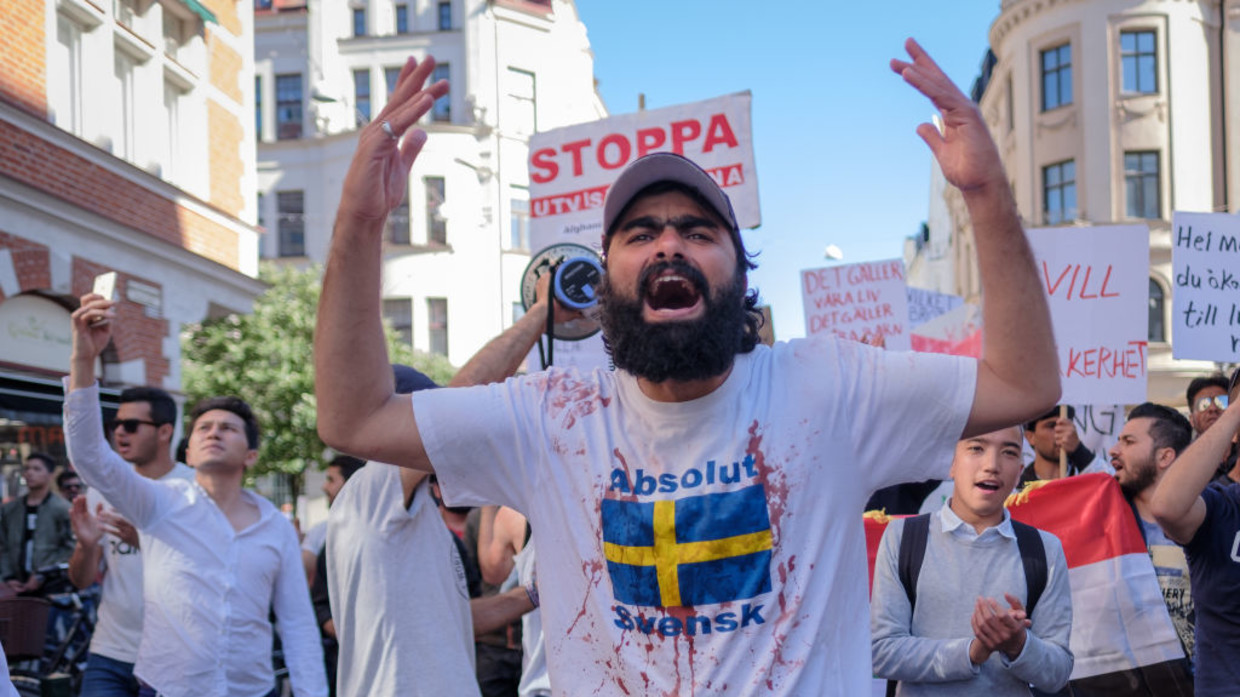
In response to a surge in right-wing political influence across Europe, several EU countries, including the Netherlands and Sweden, are implementing changes to immigration and asylum policies, primarily targeting refugees from Syria. These developments reflect growing concerns among governments about the socio-economic burden of accommodating large numbers of asylum seekers, particularly as public opinion shifts toward more restrictive immigration measures.
The Netherlands, under its newly formed right-wing government, announced a set of stringent policies aimed at reducing their number of refugees. According to the government, the policies include the toughest asylum system ever implemented in the Netherlands. The move is in response to what the government calls an “asylum crisis,” exacerbated by the large influx of Syrian refugees.
“The Netherlands cannot cope with large numbers of migrants: asylum shelters are overcrowded, procedures take too long, and costs are too high.” Immigration and Asylum Minister Marolin Faber emphasized the need to “regain control of the situation,” stating that the measures aim to make the country “less attractive” to asylum seekers. She added, “We must turn the tide and reduce the flow. There is no place here for anyone who would abuse our reception.”
Among the immediate actions planned by the Dutch government is the declaration of an “asylum crisis.” Allowing the government to bypass legislative processes for new measures aimed at curbing the influx of refugees. Including freezing asylum decisions for two years, limiting family reunification for Syrian refugees to those who have lived in the Netherlands for at least two years, and tightening residency and deportation procedures.
The government indicated its intention to request an exemption from certain EU immigration and asylum laws. This “voluntary exit” from EU regulations, if approved, would give the Netherlands greater control over its asylum policies. However, EU legal bodies will need to assess whether this move is permissible under European treaties, especially regarding the right to asylum.
Human rights groups, including the UN High Commissioner for Refugees (UNHCR), have raised concerns about the potential impact on refugees. They argue that proposed measures violate international legal obligations and undermine the Netherlands’ historical commitment to human rights and asylum protection.
Sweden is also tightening immigration policies, with the far-right Sweden Democrats now holding considerable political influence. In a major shift, the Swedish government announced plans to increase financial incentives for refugees who voluntarily return to their countries of origin. Starting in 2026, the compensation for voluntary returnees will be significantly increased, offering up to 350,000 Swedish kronor ($34,000) per individual. This measure is part of a broader effort to encourage the return of refugees who have struggled to integrate into Swedish society.
Swedish Migration Minister Johan Forssell highlighted the policy shift as a way to address immigration challenges. “The increase in financial assistance is meant to help those who want to return but may lack the resources to do so,” Forssell said. The Sweden Democrats, who have long advocated for stricter immigration policies, supported this proposal as a necessary measure to reduce Sweden’s growing refugee population, particularly Syrians and Iraqis. The Swedish government also plans to enhance internal immigration controls, focusing on ensuring only those with legal residency remain in the country.
The legal challenges posed by these new policies in both the Netherlands and Sweden will likely be scrutinized by EU authorities. While individual member states have some flexibility in shaping their immigration policies, deviations from established EU asylum laws could lead to conflicts with European legal bodies. EU spokesman Eric Mamer commented, “We have adopted legislation, and we cannot withdraw from the adopted European Union legislation. This is a general principle,” reinforcing the EU’s stance on maintaining a unified approach to asylum law.








